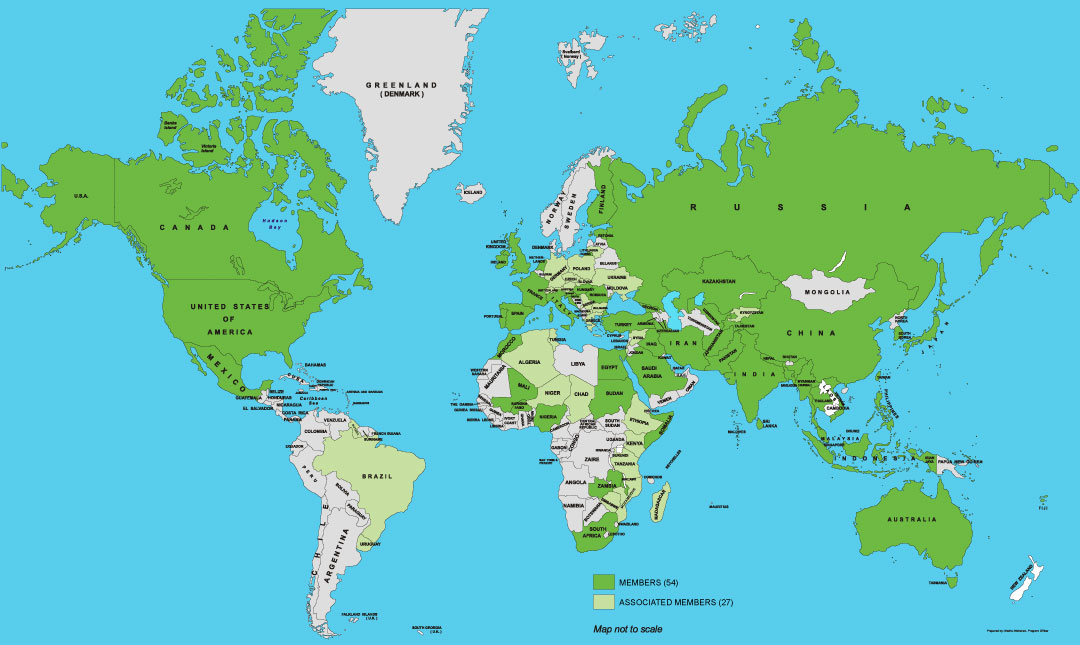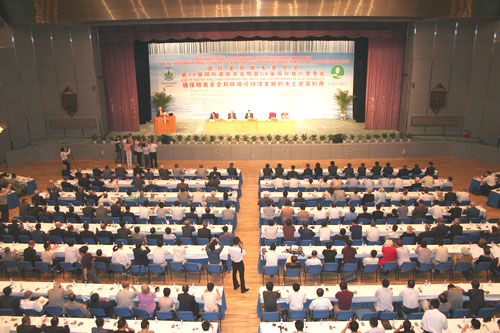
Organic farming is the form of agriculture that relies on techniques such as crop rotation, green manure, compost and biological pest control. Organic farming uses fertilizers and pesticides but excludes or strictly limits the use of manufactured (synthetic) fertilizers, pesticides (which include herbicides, insecticides and fungicides), plant growth regulators such as hormones, live stock antibiotics, food additives, organisms, human sewage sludge, and nonmaterial. Organic agricultural methods are internationally regulated and legally enforced by many nations, based in large part on the standards set by the International Federation of Organic Agriculture Movements (IFOAM), an international umbrella organization for organic farming organizations established in 1972.IFOAM defines the overarching goal of organic farming as follows:
"Organic agriculture is a production system that sustains the health of soils, ecosystems and people. It relies on ecological processes, biodiversity and cycles adapted to local conditions, rather than the use of inputs with adverse effects. Organic agriculture combines tradition, innovation and science to benefit the shared environment and promote fair relationships and a good quality of life for all involved..."
Since 1990, the market for organic products has grown from next to nothing statistically, reaching $55 billion in 2009 according to Organic Monitor (www.organicmonitor.com). This demand has driven a similar increase in organically managed farmland which has grown over the past decade at a compounding rate of 8.9% per annum.Approximately 37,000,000 hectares (91,000,000 acres) worldwide are now farmed organically, representing approximately 0.9 percent of total world farmland.
There are several organic farming systems. Biodynamic farming is a comprehensive approach, with its own international governing body. The Do Nothing Farming method focuses on a minimum of mechanical cultivation and labour for grain crops.French intensive and bio-intensive, methods are well-suited to organic principles. Other techniques are permaculture and no-till farming. Finally, newcomers as the Agro-ecologic system focus on a blend of a more large-scale approach with imbedded natural/organic farming techniques. A farm may choose to adopt a particular method, or a mix of techniques.
Related items you may like










Irrigation
Sources of Irrigation
Irrigation History +
Sources of Irrigation +
IMPROVING SOIL MOISTURE +
Ponds +
Tanks +
Diversion Weirs +
Dams and Reservoirs +
Groundwater +
Conjunctive Water Use +
Wastewater +
Poor Quality Water +
Application of Irrigation water
Canal Irrigation +
Flood Irrigation +
Deficit Irrigation +
Supplemental Irrigation +
Sprinkler Irrigation +
Drip Irrigation +
Lift Irrigation +
Centre Pivot Irrigation +
Tidal Irrigation +
Micro-Irrigation Technologies for Small Holders +
Automatic Irrigation Systems +
Pressurized Irrigation +
Irrigation in Viticulture +
Purpose of Irrigation
Instruments and implements of Irrigation
Pumps +
Centrifugal Pumps +
Submersible Pumps +
Turbine and Jet Pumps +
Conveying Pipes +
Sprinklers +
Drippers +
Canal Automation Systems +
Irrigation Management
Economics of Irrigation System +
I&D System Types +
I&D Investment Functions +
I&D Management Issues +
Participatory I&D Management +
Equity in Irrigation +
Irrigation Services +
Irrigation and environment
Pollution and Irrigation +
Irrigation and Climate Resilience +
Environmental Aspects of Irrigation +
Environmental Impacts of Irrigation +
Green Lawn Irrigation +
Safe Use of Waste Water in Irrigation +
Organic Agriculture +
Soil Health +
Soil Health Management +
Quality of Irrigation Water +
Capacity Development
Drainage
Drainage Types and Systems
Agricultural Drainage +
Field Drainage systems +
Canal Irrigation and Drainage +
Surface Drainage Systems +
Subsurface Drainage +
Mole Drainage +
Bio-Drainage +
Regional Bio-Drainage +
Drainage Issues
- Organic soil
- Peat clay, or Organic silt
- Agriculture division box, or Proportional distributor on the field
- Organic envelope
- Rainfed agriculture
- Inorganic silt
- Deleterious materials and organic impurities
- Organic
- Organic compound
- Organic solvents
- Organic refuse
- Inorganic refuse
- Organic farming
- Organic active ingredients
- Organic irrigation
- Flood recession agriculture






